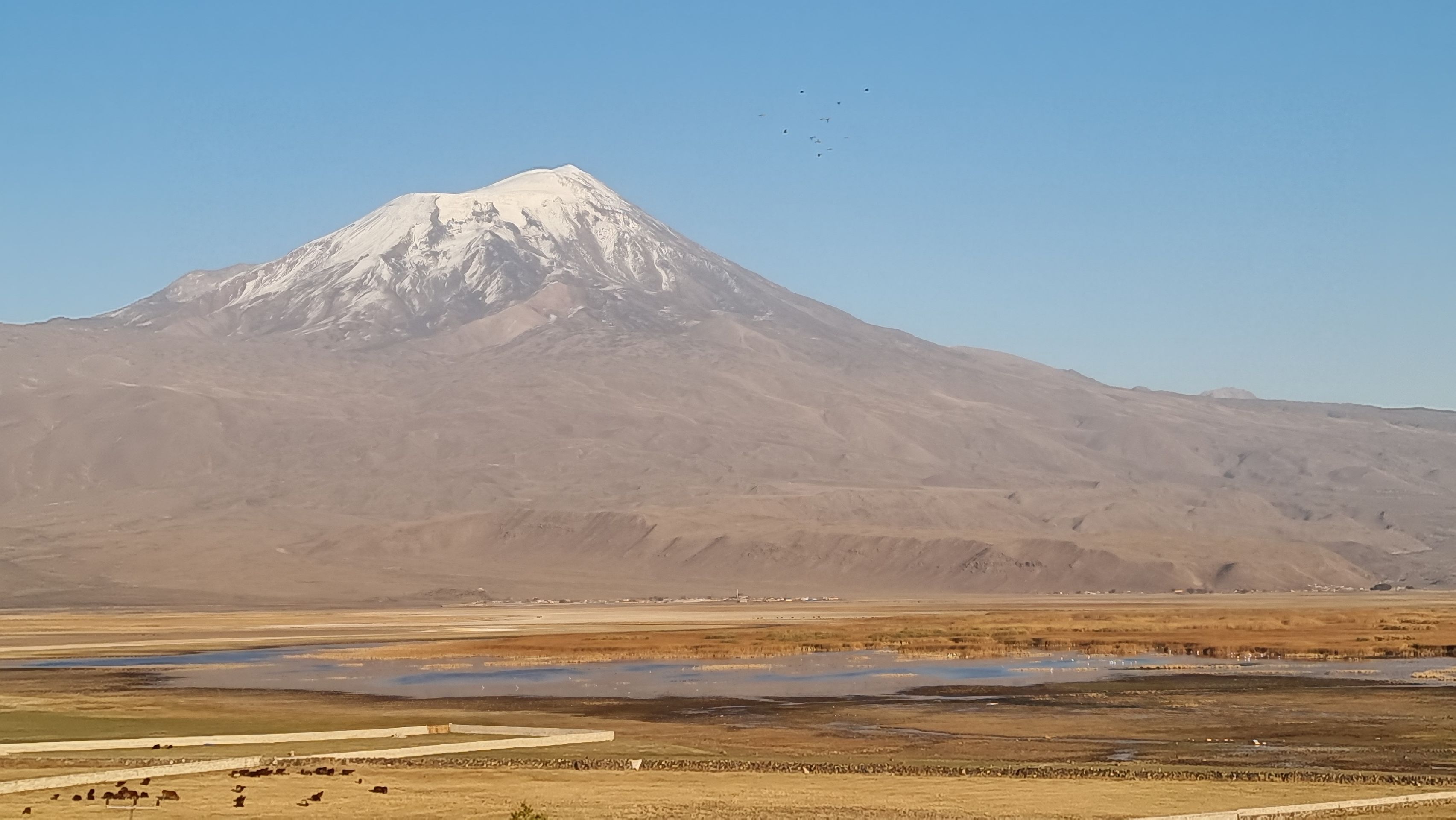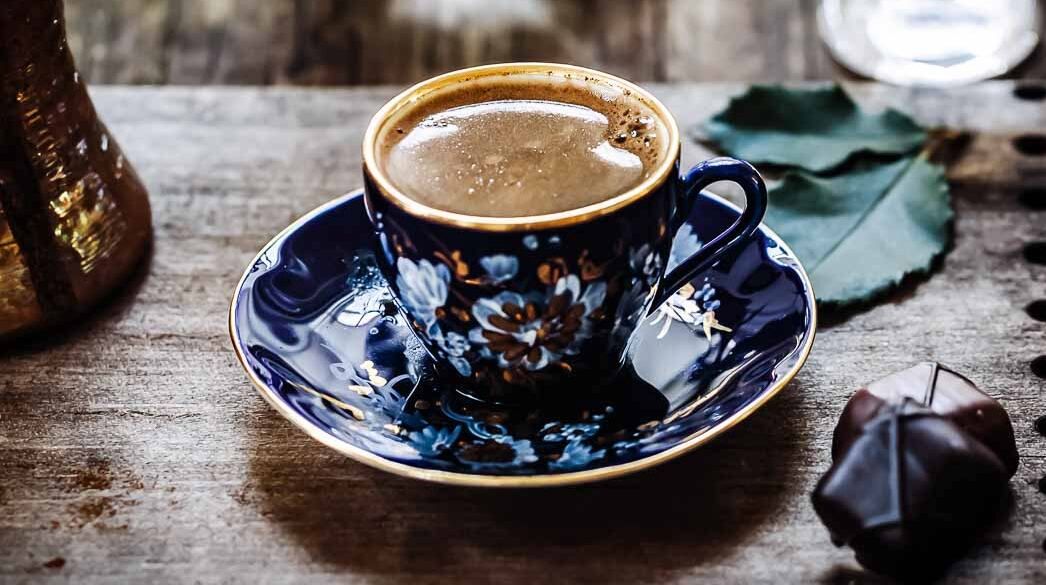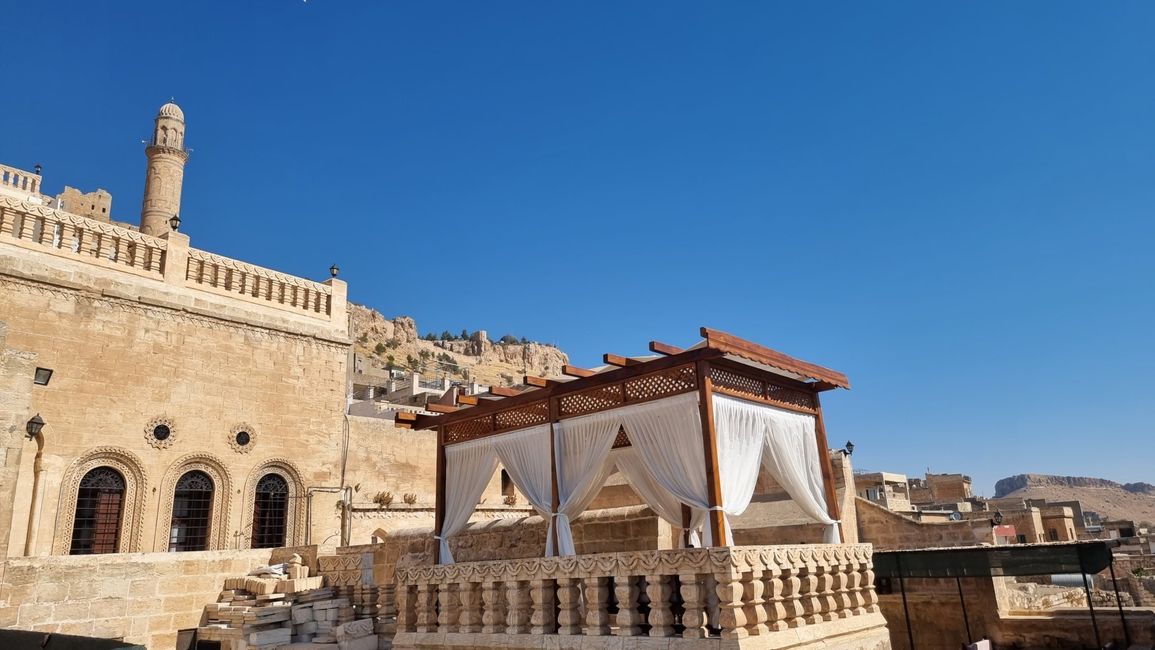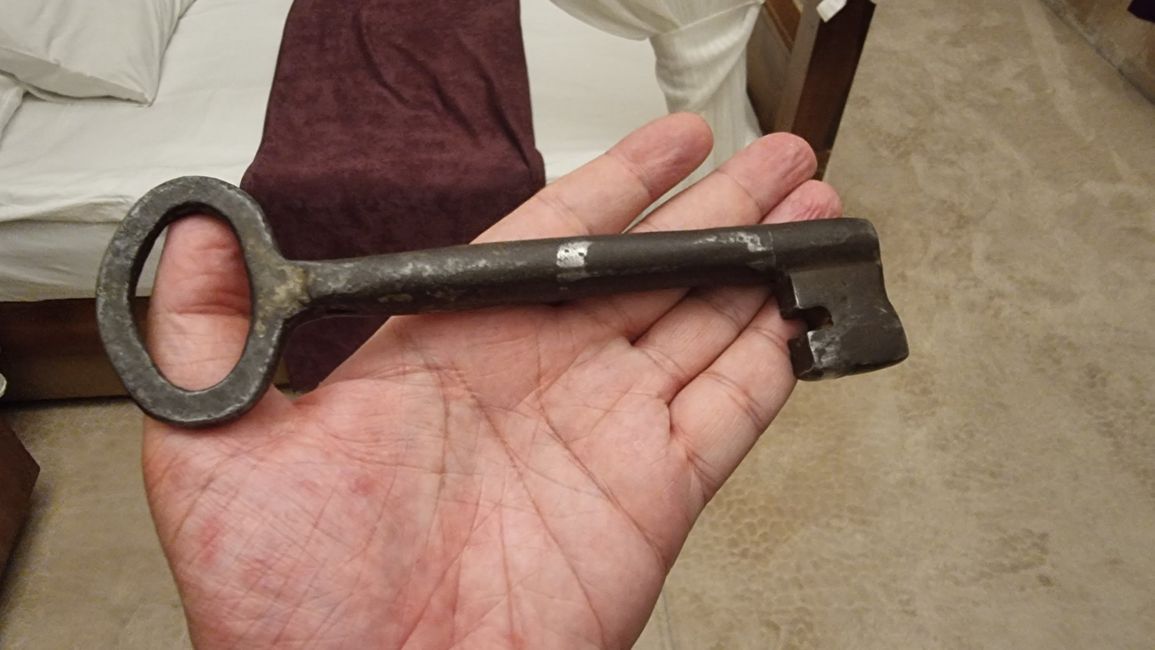Day 22 - Don Curry sleeps in a synagogue
Published: 25.10.2021
Subscribe to Newsletter
Don Curry has spent the night in various locations throughout his life. From treehouses to Maharaja palaces, from simple tents to high-rise apartments, from ship cabins to dormitories in pilgrim hostels. And once even in his own car. But today's accommodation was beyond anything he expected.
The morning began with the generous breakfast of the Palmyra Hotel. The waitress had remembered that Don Curry especially liked tahini and pekmez, and she placed it directly in front of his plate with the other delicacies grouped around it. In the end, he even received a bottled jar of the Turkish spread as a gift from the hotel. A truly attentive hotel!
On Sunday morning, the traffic was still quiet, so Don Curry was able to drive through the old town without any problems and arrived in Diyarbakir around 12:30 p.m. He had already entered a parking garage next to the city walls in Google Maps beforehand, so he didn't have to search for a free parking space for his Insignia for long. The traffic in the unofficial capital of the Kurds was also relatively light, but there were many people strolling through the extensive city center.
Don Curry strolled along as soon as he left the massive black basalt city wall behind him. He soon reached his first sight on the way, the charming Nebi Cami (Prophet Mosque), which had a typical feature of many local mosques, the black and white striped minaret. The nearby Grand Mosque, on the other hand, was made entirely of the black stones of the region, including its minaret. It is considered one of the oldest mosques in Anatolia and is said to date back to the 7th century. Many magnificent columns and other architectural decorations were recycled from the previous Byzantine Thomas Church. Despite its lack of color, it is one of the prayer houses that impressed Don Curry the most during this trip.
The Syrian Orthodox St. Mary's Church has stood on its site for much longer. Its origin dates back to the 3rd century, but it has been subject to various alterations and restorations over time. It is still used for religious services today. The city of Diyarbakir proudly displays peaceful coexistence of different religions. During his walk through the labyrinthine streets of the old town, Don Curry discovered other churches and mosques, but either they were closed or closed for renovations.
So he entered the Diyarbakir Citadel, which served as a notorious prison for a long time. Today, it is both a museum and a park, and on early Sunday afternoons, it is a popular picnic area for hundreds of families. At least four wedding couples rushed around the premises, searching for beautiful backgrounds for their photos. Don Curry first went to the restaurant in the Citadel, from whose terrace he had a sweeping view of the Tigris Valley. He ordered a rather spicy chicken fajita and, due to the midday heat, a raspberry frozen drink. A children's chess tournament was taking place in the nearby ruins of St. George's Church with its two domes. The mosque on the Citadel grounds was so crowded that Don Curry turned back already in the courtyard.
It was time to make his way to his accommodation for the night. The owner had already contacted him yesterday to find out the exact arrival time. Don Curry would soon find out why this was so important. He was instructed to call 5 minutes before arrival. To reach his destination in the old town, Don Curry had to drive through the new city of Mardin first, the extensive and extremely modern city at the foot of the old town hill. The old Mardin, on the other hand, lies below a citadel on a steep slope above the plain. When this ancient city was built, no one could have imagined the existence of cars, so today there are only two main roads in the city, with occasional side streets that end as dead ends.
Don Curry drove up one of these narrow dead-end streets after checking in with the hotel. A young man was already waving at him and led him 50 meters further to a slightly wider area where he could park his car close to a house wall; the side mirrors were folded in. Another young man who also worked at the hotel joined them. The first one shouldered Don Curry's heavy suitcase, and the second one told him something about Mardin and its history on the way to the hotel. And Don Curry immediately experienced what makes Mardin so special: it is a city of stairs. There are narrow connecting stairs everywhere, linking the different levels on which houses stand. The stairs are rarely straight but wind around houses, have high steps here and flat steps there. About 100 steps led up to Maristan Tarihi Konak, his hotel, which, by the way, is located in the lower part of Mardin. Don Curry was warmly welcomed by the owner at the hotel, given a huge key, and then escorted to his room, another 30 steps up. The first thing Don Curry admired was the terrace furnished with a table and benches, which belonged to his room. In the fading daylight, he enjoyed a breathtaking view from here of the new city of Mardin and the plain that extended all the way to Syria. On particularly clear days, the accompanying staff member said, you can see Syria. Then Don Curry turned around and saw his room: actually, it was a separate, artfully adorned structure that is at least 500 years old, like the rest of the house. The rich decoration continued inside, even the 4-meter-high ceiling was adorned with gold-plated reliefs. The whole property once belonged to a wealthy Jewish merchant family, Don Curry was told, and 'his' room served as a synagogue for the small Jewish community of Mardin back then.
Don Curry didn't have much time to appreciate his very special temporary accommodation, because despite the light snack at noon, he began to feel hungry. To save Don Curry unnecessary travel, the hotel inquired about available tables in restaurants. In one that was considered the third best in the old town, there were still vacancies. Immediately, a staff member offered to accompany Don Curry to the restaurant, as orientation in Mardin is extremely difficult. Once again, he had to climb at least 100 flights of stairs, passing through a part of the already closed bazaar and past the Grand Mosque with its impressively decorated minaret. From the terrace of the restaurant, Don Curry looked down on the illuminated minaret and the dome of the mosque.
This restaurant also did not serve alcohol, but it had a range of local drinks that were more than unusual: for dinner, Don Curry ordered a cool mixed drink made from cold water, lemon juice, and spices. Since many of the regional specialties were prepared with offal or even with lamb testicles, Don Curry preferred the chicken skewer, which was once again excellently grilled. Gradually, a noticeable evening chill spread on the terrace, so Don Curry skipped dessert and instead drank a sahlep, an Arabic hot drink made from the root of a certain orchid species, milk, and spices. It has a slightly slimy consistency but tastes really good and warmed Don Curry from the inside.
On the way back to his hotel, he didn't find the shortest route, but he found a way, even though he had to climb stairs several times and then descend again. Afterward, he was looking forward to his soft bed - in the middle of a former synagogue...
Subscribe to Newsletter
Answer
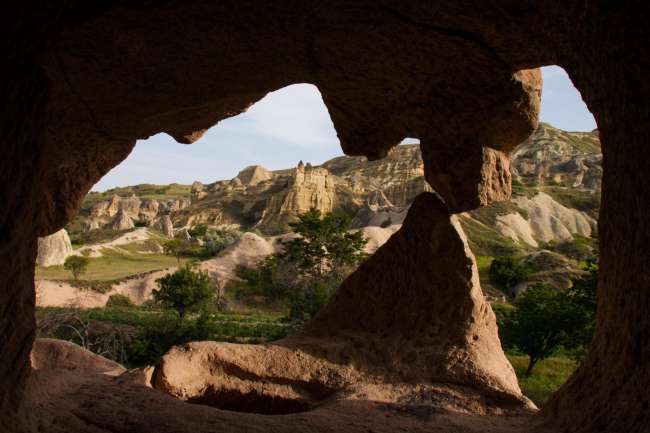
Travel reports Turkey
